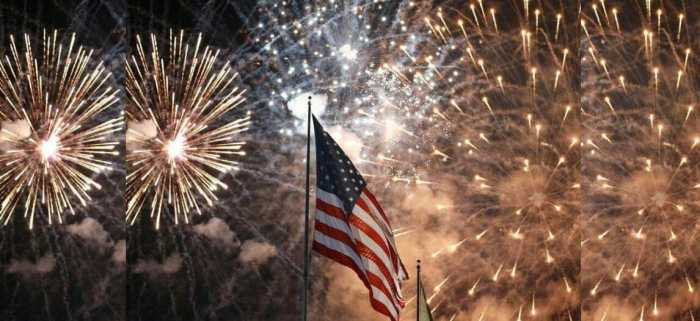Iron Glove/ Velvet Fist
Winston Churchill once noted that the weak grow strong by effrontery and the strong grow weak through inhibition. It is a sentiment worth considering with the Korean Peninsula heating up after North Korea pummeled the South Korean island of Yeonpyeong.
Sending the aircraft carrier USS George Washington in connection with joint U.S.-South Korean military exercise is a show of backbone long overdue. North Korea’s action is nothing less than an act of war against the people of South Korea. The unprovoked shelling destroyed 31 homes and practically every building on the island. Ash and charred remains of blown-out buildings are evidence of the brutality of the attack that wounded 18 and killed four people in what was the first civilian casualties since the Korean War ended 57 years ago.
That war, frequently called the forgotten war, because it was sandwiched between WWII and Vietnam, killed 2 million people, including 38,000 American soldiers. Then, as now, that attack was unprovoked as Communist North Korea stormed over the 38th parallel in a naked act of military aggression against the South. Both South Korea and the United States were caught completely off guard, leaving the defenders badly mauled. A brilliant amphibious invasion at Inchon led by General Douglas MacArthur turned the tide and total military victory seemed certain until a half-million Chinese soldiers poured over the Yalu River driving back American and U.N forces.
China was and still is the wild card when it comes to North Korea —as well as being a sharp thorn in our flesh. Ultimately an armistice was signed in 1953 reaffirming the 38th parallel as the boundary line between North and South. While the war was a tactical draw it was clearly a strategic victory for the United States. North Korea’s objective to conquer South Korea failed while the United States’ objective to keep South Korea independent and democratic succeeded.
While South Korea has been a prosperous and free country, North Korea has been a failed, dysfunctional state with an iron heel on the throat of its people that it can barely feed. They have never renounced their stated goal of uniting the two Koreas under one communist dictatorship and with its one million man army it will seize the earliest opportunity to achieve that objective. That opportunity has never arisen because of America’s commitment to the defense of South Korea.
This latest shelling is but another attempt to intimidate and cow the South into submission. Since the attack the island has become a ghost town populated with stray dogs, many of them wounded from the barrage and aimlessly roaming about after their owners hastened to leave the devastation. This is not the first of North Korea’s transgressions. In fact, it is one of many. Missile firings to intimidate neighboring countries have been North Korea’s greeting card in recent years and the sinking of a South Korean warship in March killed 46 sailors. The world’s response to these outrages has been waiting for China, North Korea’s strongest military and economic supporter, to step on the world stage and discipline its wayward child. But China, like Godot, never shows up for its assigned role.
In some important ways things have changed since the Korean War. China is far more integrated in the world’s economy whereby an outbreak of serious hostilities will have unpleasant economic consequences. Meanwhile, South Korea’s current administration is more willing to take a harder line against their errant brothers to the north than it had in the past. Indeed, there are even reports that China is becoming increasingly impatient with their recklessly impetuous ally. One Chinese official has reportedly said China is obligated to defend North Korea if attacked, not if North Korea attacks someone else.
This is good news if one is trying to find some in the Korean peninsula where good news is admittedly hard to find. No one wants war. The United States fighting in Afghanistan and Iraq hardly wants another military headache; South Korea does not want to fight a militarily stronger North Korea; China doesn’t want to upend the economic apple cart much less have U.S. aircraft carriers patrolling the Yellow Sea; even North Korea, despite their saber rattling, must know that any attack on the South Korean mainland will result in an overwhelming military response by the United States.
America’s response to the crisis, as far as I can judge, is on the mark: Tough, certain and measured. One doesn’t need the “Bring it on” inflammatory rhetoric that George W. Bush unfortunately challenged the Iraqi insurgents with to get the message across. I much prefer the velvet glove, iron fist approach of another cowboy/ politician, Theodore Roosevelt, who was fond of saying: Speak softly but carry a big stick. A picture paints a thousand words and the sight of U.S. aircraft carriers and joint military exercises in North Korea’s neighborhood says plenty without actually verbalizing it. Even that presence is nuanced in that the military forces arrayed shows U.S. determination to defend South Korea without inciting fears that there is any intent to invade North Korea. When dealing with the North’s leaders Kim Jong Il and son, whose mental instability and paranoia has been commented upon by a number of international observers, caution must temper boldness without excluding it.
With the overextension of American military power in the world, this crisis should lend itself to thinking more clearly about what the role of the United States should be in the post 9-11 world. A strong military presence is a must but our strategy must also include the strengthening of the conventional capabilities of our allies, especially Japan, who would serve as an effective counterweight in that sensitive geo-political region. I’m not looking to start an arms race in that part of the world but let’s remember that arms races do not cause world tensions, it is world tensions that cause arms races.
But as much as I favor the strengthening of the conventional capabilities of our allies, who have too long nested under America’s nuclear umbrella, I’m more concerned about supplying these nations with effective missile defense systems. With U.S. conventional military superiority so great an increasing number of rogue states seek nuclear capability as leverage. One important way to nullify nuclear blackmail is to minimize the threat by creating a defensive system to thwart such an attack. And yes, in an age of super computers, I do believe a viable missile defense system is technologically feasible.
It is true we live in a very complicated and dangerous world. Hopes soared and then were dashed that things might be different after the end of the Cold War. In 1989, Francis Fukuyama, a political philosopher and economist, wrote an article entitled “The End of History” which he expanded into a well-received book three years later. Fukuyama wrote that after the collapse of the Soviet Union, its satellites and the fall of the Berlin Wall we may be witnessing not just the end of the Cold War or the passing of a particular period … but the end of history insofar as it signals the endpoint of humanity’s socio-cultural evolution and the advent of Western liberal democracy as a final form of human government and a universal ideal.
Yes, and we would all like to believe in Santa Claus, the Easter Bunny and the Tooth Fairy. These Hegelian ideas about the moral evolution of the human race are always overstated, though to be fair to Professor Fukuyama, whose article and book precipitated a polemical conflagration, both his proponents and critics focused on his general conclusions while ignoring his pointed caveats.
As for myself, I’m afraid the earth will never be a place of milk and honey. Whether the world is intelligently designed or just a coincidental assortment of molecular structures, it is no accident that the pen of the Holy Ghost (or whatever muse you like) has labored more in describing the sufferings of Job than it did the felicitations of Solomon. This is a sure sign that what Wordsworth called “the still sad music of humanity” will play on. As poor Job lamented: “Man is born unto trouble.” And so he is — just read the papers.
































